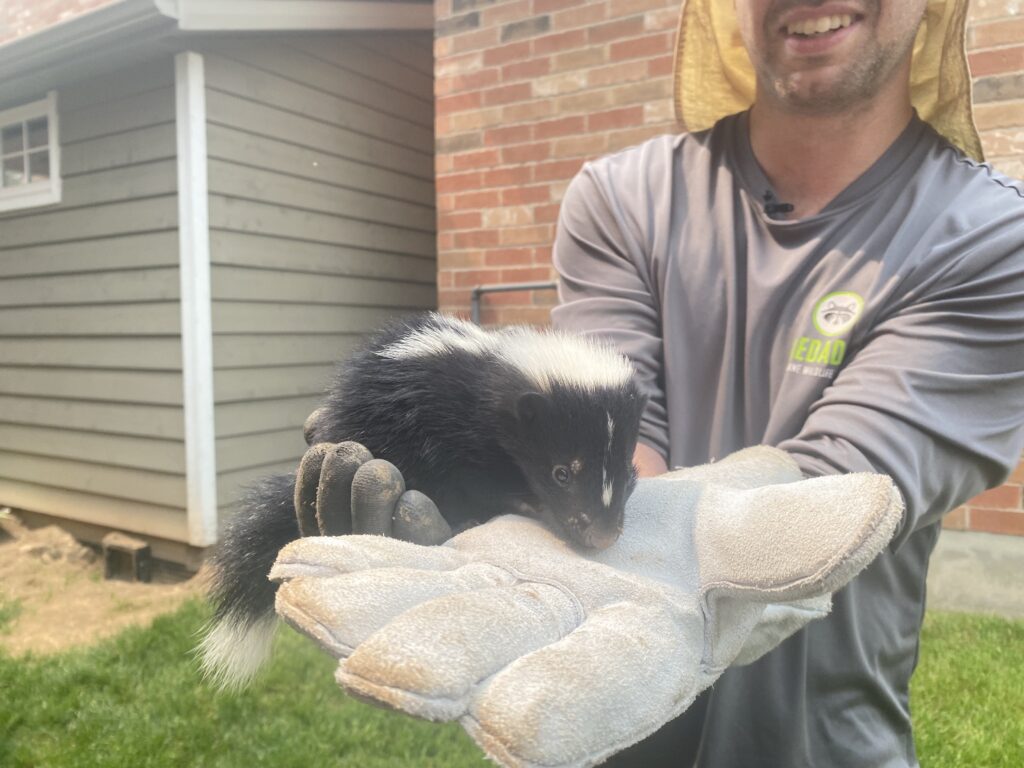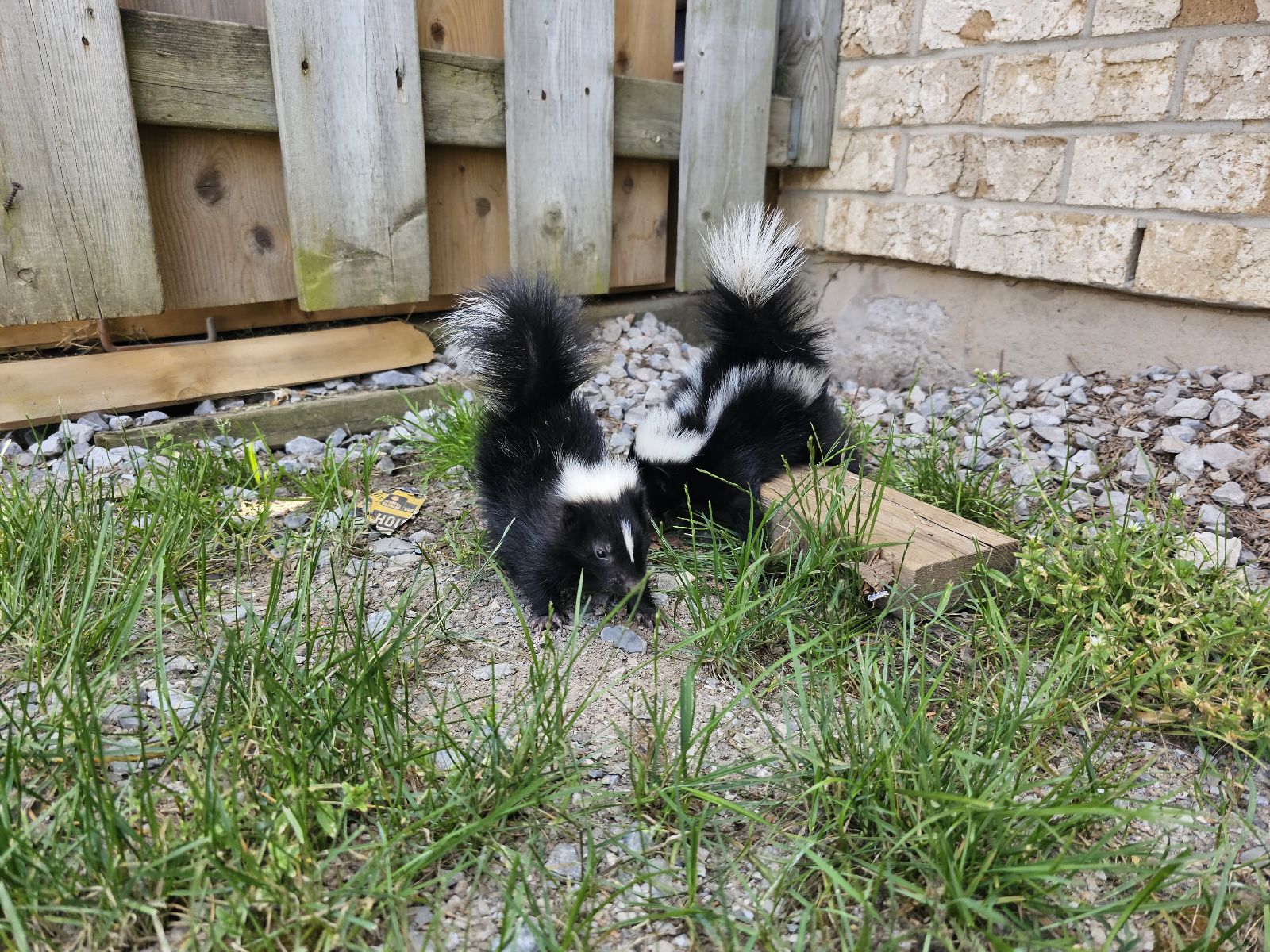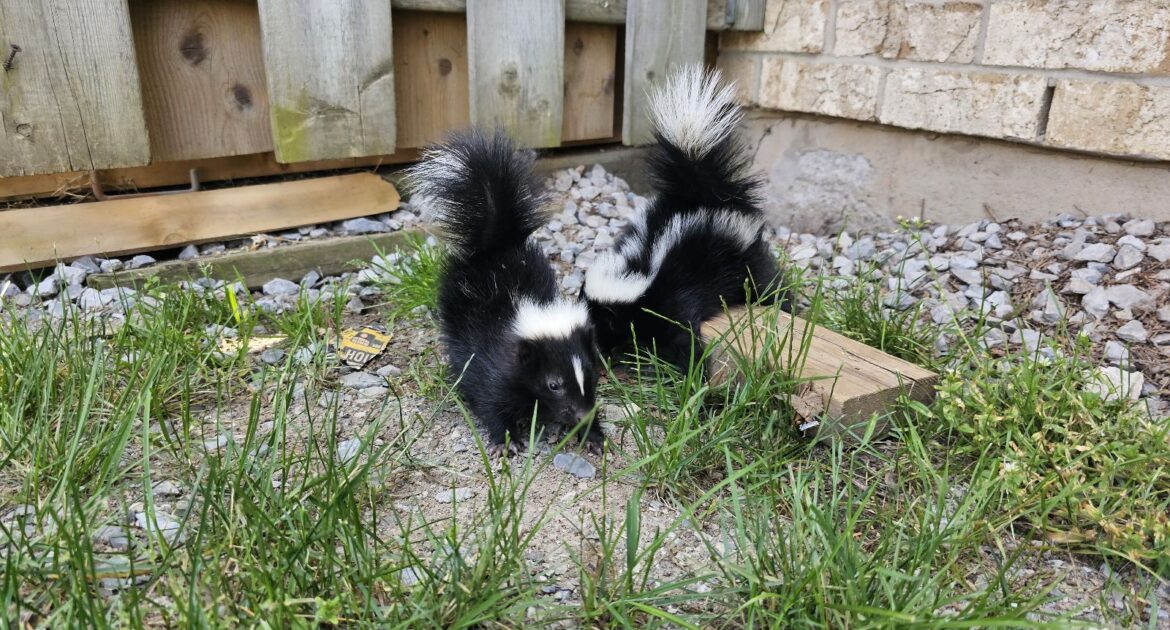If you happen to reside in Pickering, you’re no stranger to our resident black-and-white striped visitors — skunks! While they are largely peaceful animals, their distinctive smell can cast a lasting impression, leaving you exploring options like skunk removal in Pickering. However, removal doesn’t necessarily stand as the only solution. Here in this blog, we aim to enlighten you on how to coexist harmoniously and safely with these often misunderstood animals without disrupting our delicate ecosystem. So buckle up for an informative and engaging discussion on cohabitation with skunks!
Understanding Skunk Behaviour
Living peacefully with skunks begins by understanding their behaviour. The striped skunk, which is most commonly found in the region, is a docile species, and contrary to popular belief, they’re not eager to spray their infamous odour. In fact, they only use their scent as a last defence measure when they feel threatened or cornered, as each spray depletes their stinky reserves, which take time to replenish.
These animals are nocturnal, meaning they’re most active during the night. Their diet includes insects, small mammals, eggs, and vegetation, which leads them to rummage through trash bins or gardens in search of food. Skunks have a keen sense of smell and hearing, but they have poor eyesight, often causing them to unintentionally venture into human territories.
Moreover, they are solitary animals, except during mating season – this is primarily during the winter and summer months. During the colder seasons, they try to keep warm by seeking shelter. It’s during these times you’re likely to find them in basements, crawlspaces, and garages – places that offer warmth and protection from the harsh weather.
Remember, understanding skunk behaviour is not about spotting signs of a ‘problem animal.’ Instead, it’s about recognizing their presence and needs and finding a way to live with them without fear or nuisance.
Identifying the Signs
The first step in living harmoniously with skunks is to identify any early signs of their presence. Be alert to these signs:
- Strong fragrance: Skunks are infamous for their unique, pungent smell which can linger for days. If one has been around, odds are you’ll get a whiff of it.
- Physical evidence: Animal tracks around your yard or garden are a definite sign. Their prints include five toes and visible claw marks.
- Digging and disturbances: They scavenge for food by digging, which often results in small, cone-shaped holes or disturbances in your garden or lawn.
- Sighting at dusk and dawn: Skunks are crepuscular, meaning they are most active during dawn and dusk, so catching a glimpse of one during these periods can indicate their residency in your area.
- Scat: Skunk droppings are another clear sign of their presence. These usually contain remnants of their omnivorous diet, including insects, berries, and small mammals.
If you notice these signs, don’t fret. Remember, the goal here is not necessarily to entirely remove these animals from our environments but to coexist safely and peacefully. However, if one becomes problematic, it is essential to know the effective, safe and humane methods on how to get rid of a skunk.

Creating a Skunk-Friendly Yard
Creating a skunk-friendly yard is not about inviting them to live comfortably within your lawn but about promoting an environment where both animals and humans can coexist peacefully. Here are some steps you can take:
- Maintain your garbage bins: Food sources can be a big attraction. Always ensure your garbage cans are sealed tightly and never leave pet food outside overnight.
- Secure your compost: If you compost at home, be sure to use a well-secured composter. Unsecured piles of compost can serve as a food source for animals.
- Use skunk-resistant plants: Certain plants like Squash and cucumbers produce prickly foliage that animals typically avoid.
- Install motion-sensor lights: Skunks are primarily nocturnal and shy animals. The sudden light from motion-activated systems can deter them from entering your yard.
- Fence your garden: To prevent burrowing, installing a physical barrier around your garden can be helpful. Just ensure it extends several inches below the ground level.
- Keep your yard clean: Fallen fruits and bird seeds can lure skunks into your yard. By maintaining cleanliness, you can minimize attracting them.
While these steps can significantly discourage animals from nesting on your property, always remember that it’s equally important to respect them as part of our ecosystem. Certainly, it’s a challenging task to live harmoniously with wildlife, but with the right techniques and awareness, maintaining a balance is entirely possible.
Staying Safe Around Skunks
As much as we want to peacefully coexist with skunks, it’s equally paramount to ensure your safety and that of your loved ones. Being nocturnal animals, they usually come alive in the evening and nighttime, so be cautious when you’re outside during these hours. Remember, you’re sharing your environment with them, and you don’t want to surprise or frighten them as it may feel threatened and defensively spray its odour.
When you encounter one, keep a safe distance. They are not aggressive by nature, but they can spray a foul-smelling oil as a defence mechanism when threatened. They can aim their spray up to 10 feet away, so it’s best to keep your distance to avoid an unpleasant experience.
Teach children about animal safety. Educate them about their behaviours, and why they shouldn’t be approached or scared. It would help if you also taught them what to do if they come face-to-face with a skunk.
While these striped creatures are typically more afraid of us than we are of them, it’s still important to stay vigilant when sharing our space with them. In the event that one becomes a significant problem or if you suspect it’s distressed or ill, it’s always advisable to call a professional, like Skedaddle Humane Wildlife Control. We have the training and expertise to handle such situations in the most humane manner, ensuring both your safety and that of the animal.
When To Contact Skedaddle For Wildlife Removal
Living in harmony with skunks doesn’t necessarily mean permitting them to take over your backyard. While we wholly support a balanced ecosystem, we also understand the importance of maintaining a safe and comfortable home environment. That’s where Skedaddle’s expertise comes into play.
If you find skunks frequently visiting your property, causing damage to your gardens, or noticing foul odours frequently, it’s time to call in the professionals. These signs may indicate a den nearby. It may seem harmless initially, but in the long run, they may pose risks to pets, children, and even adults if they feel threatened.
We at Skedaddle thrive to ensure a balanced coexistence between wildlife and humans. Our skilled professionals are armed with in-depth knowledge and humane methods on how to keep skunks off your property. Furthermore, we provide tips and resources to prevent future intrusions, achieving a healthy home-animal relationship with kindness, respect, and care.
Contacting us for animal removal is not about disturbing the ecosystem or being inconsiderate towards wildlife, but maintaining a harmonious, respectful relationship where humans and skunks can safely coexist. After all, your safety and peace of mind, along with respect for wildlife, are our utmost priorities.
Find Humane Solutions With Skedaddle
Living harmoniously and safely with skunks can be an achievable goal when you understand their behaviour, identify their signs, create an animal-friendly yard, and know how to keep you and your family safe around them. These animals are our neighbours, and fostering a peaceful co-existence benefits both humans and nature.
At Skedaddle, we champion humane wildlife control methods, always emphasizing coexistence wherever possible. But we understand that there might be circumstances that pose a challenge to this ideal scenario, and that’s where our expertise comes in handy.
If ever you find yourself in need of professional assistance with skunk-related concerns, or you want tips on how to better foster an animal-friendly environment, we at Skedaddle Humane Wildlife Control in Pickering are here to help. It’s not always easy living alongside wildlife, but with the right knowledge and resources at your disposal, it’s a task you can certainly tackle with confidence. Reach out to us today for a consultation, and let’s ensure your home remains a harmonious place for all its inhabitants.





